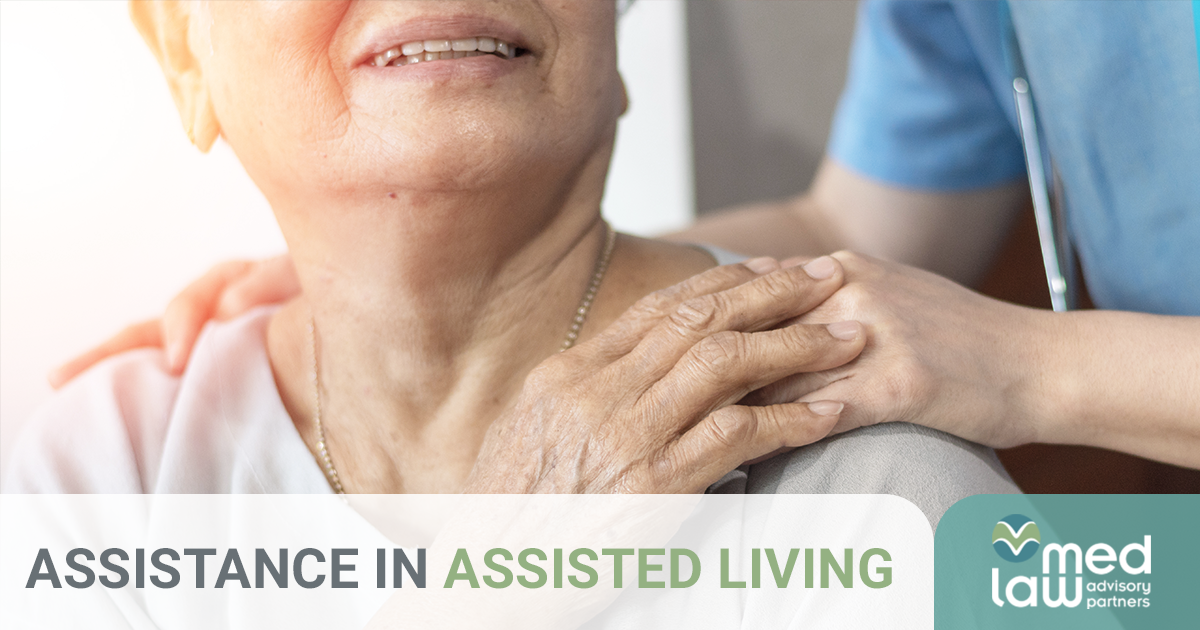Assistance with Assisted Living

Assisted Living Facilities (ALFs) began to pop up in the early 1980s. Since then, they have become a prominent provider of care for the elderly population. As this level of care has risen in popularity, so too have liability claims in this setting.
Levels of Care
Unlike nursing homes or skilled nursing and rehabilitation facilities, which provide medical care, residents appropriate for admission to ALFs do not require high-level medical monitoring or consistent medical care. ALFs provide care for seniors who require personal care assistance. This includes assistance with activities of daily living (ADLs) such as bathing, dressing, and eating. Seniors residing in assisted living facilities are also often provided help with meals, housekeeping, laundry, and medication assistance. One of the appealing aspects of ALFs is that residents can access as much or as little assistance as they need, allowing them to retain much of their independence and autonomy. Emphasis is frequently placed on providing ALF residents with activities to provide a more home-like environment and foster socialization. Most residents can enjoy the independence of individual apartments, often equipped with kitchens and handicap-accessible bathrooms. Many facilities also provide memory care services that are geared toward residents with Alzheimer’s disease or dementia.
Liability Claims in Assisted Living
The average cost of liability claims across all aging services settings has increased since 2018, with assisted living claim costs exceeding those of skilled nursing. Fall-related allegations were the most common in the assisted living setting. Fall-related injuries included fractures, head injuries, lacerations, muscle/ligament injuries, and death. Aside from falls, other frequent allegations in the assisted living setting were resident abuse, understaffing, failure to monitor or supervise, pressure injuries, delays in seeking treatment or failure to transfer, medication errors, elopements, and wrongful death. While pressure injury allegations are not prevalent in the assisted living setting, the severity of pressure injury claims has increased significantly. Elopement-related claims accounted for the smallest number of claims but were the most expensive. In an effort to curb litigation risks and enhance the quality of care and life of residents, risk management recommendations often include expectations management, clear and transparent communication with residents and families, and ensuring placement suitability.
Unlike nursing homes or skilled nursing and rehabilitation facilities, which are regulated by The Centers for Medicare and Medicaid Services (CMS), most ALFs are licensed and regulated by individual state health agencies. The team of legal nurse consultants at Med Law Advisory Partners is well-versed in the regulations specific to assisted living facilities. This knowledge is crucial when addressing allegations in these liability claims. Let us share our expertise with you to gain further insight into the standard of care in the assisted living setting. Our nurse consultants can make the difference in obtaining a favorable outcome in the defensibility of these cases.